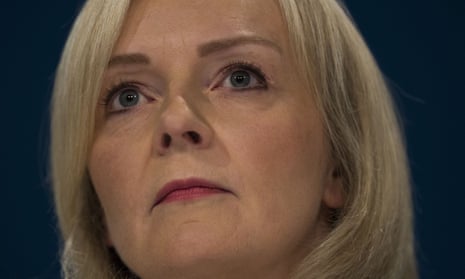Liz Truss took to the Conservative conference podium as justice secretary for the first time today, ready to usher in “the most far-reaching reforms ever seen”. The reforms weren’t outlined, but mental health got just one, fleeting mention. This is in spite of the prison and probation ombudsman reporting an alarming rise in “self-inflicted deaths” – up 34% compared with 2014-15. The number of prisoners self-harming, assaults on inmates and deaths in prison all went up over the past 12 months. Self-harming incidents in prison are over six times higher among women than in men.
When Anna Baker was arrested, she was reliant on a methadone replacement programme. Anna was a long-term heroin addict, but the prison she was placed in didn’t have a detoxification programme available. Instead of methadone, she was prescribed painkillers.
Staff placed her on suicide watch when she attempted to take her life shortly after entering the prison. But despite the ready availability of “safe cells” for vulnerable women, inadequately trained staff placed her in a regular cell with a bunk bed. Her erratic and despondent behaviour was put down as a disciplinary issue, and privileges such as her cell TV were withdrawn. After a few days she was left to herself, no longer prioritised as high risk. When prison staff entered the cell at lunchtime on 26 November 2002, Anna was found hanging.
Anna was the nearest thing I had to a mum. Stepmum, in reality; I wouldn’t meet my birth mum until I was 22 due to her own drug addiction issues. Anna became one of six women to kill themselves at Styal women’s prison in the space of 12 months. At 10 years old I learned of Anna’s death not from family, but from the Six O’Clock News, her face added to the collage of dead prisoners on screen.
Despite the difficult cards life had dealt her, Anna was bright and full of life. Adopted by a white couple as a baby, she had battled with the contradictions of her own identity – the biological daughter of an African-Caribbean man, brought up in a family that didn’t look like she did. The slide into drugs came early, and before long she, like my father, her boyfriend, was a heroin addict. She existed in a constant cycle of cravings, mood swings and dangerous drug pick-ups in back alleys and dark, smoky houses around Manchester. One of those dark and smoky terraced houses was the one I called home. Those dangerous drives to drug dens in the back of a clapped-out BMW was the only life I knew as a child.
A Warrington coroner’s court inquest was damning of Styal prison and its treatment of Anna. It had failed to carry out an adequate assessment of her situation – including her drug withdrawal, mental health and prison cell needs. Styal went on to undertake a major series of reforms, including new management and investment, and today is not the prison it was 14 years ago.
Women account for 28% of all self-harm incidents in jail, despite making up less than 5% of the prison population. Nearly half of female prisoners have attempted suicide during their life. According to charity Women in Prison, it’s the first time 85% of mothers in prison have left their children, with more than 17,000 children a year losing their mum to prison. With women frequently locked up in prisons so far from their loved ones – there being just 12 women’s prisons in England – families all too often can’t afford the long journey to see Mum.
The campaign group Inquest stood up for my stepmum after her suicide, stopping her becoming another voiceless statistic of our failed prisons. They see the injustice all year round: “Deaths in prison cannot be looked at separately from examining harsh and impoverished prison conditions, the use of segregation, poor medical care and prison overcrowding – all of which have implications for people’s mental and physical health.”
More than 100 women have died in prison since Anna. I’m only one child of an inmate failed; one of so many stories that could be told. What I know is that these women and their families are not degenerates who don’t deserve dignity or help. I am not ashamed to write of Anna’s drug addiction, or of her imprisonment. What I am ashamed of is that we live in a society that turns a blind eye to these women’s mental health.
While it’s too late for my loved one, for the sake of so many more, it’s time to stop ignoring women behind bars. Please, Liz Truss, be the justice secretary that fixes our broken system.
